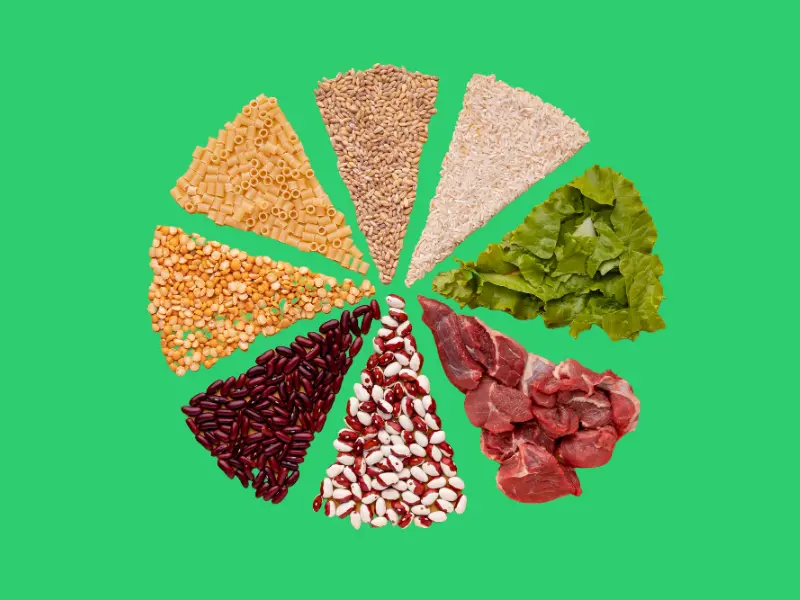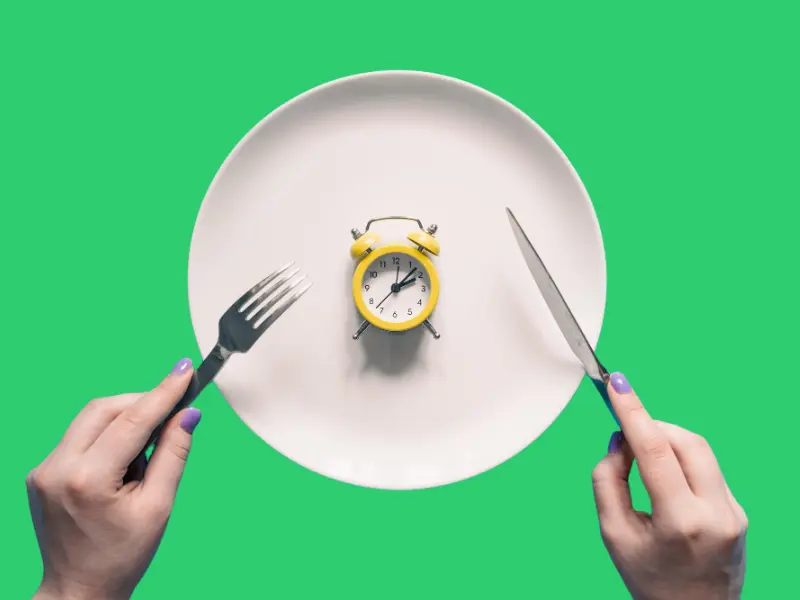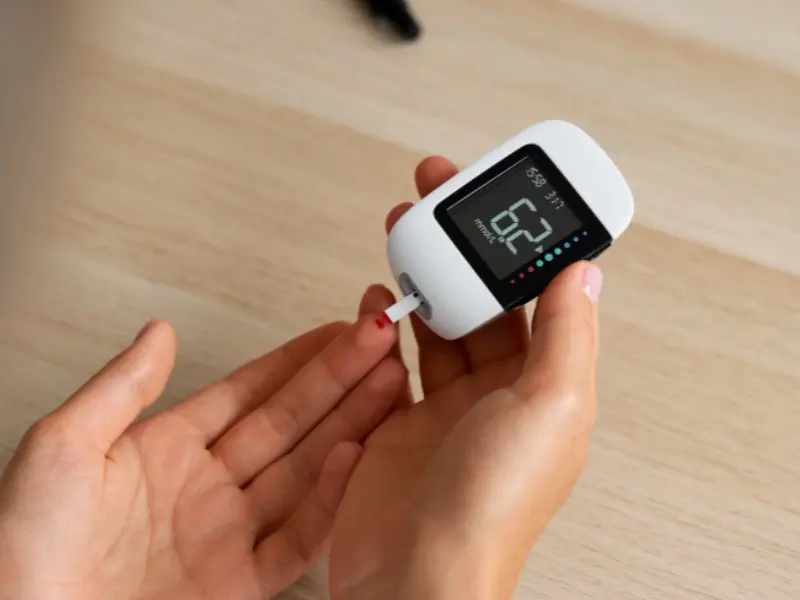Can Diabetics Have a Cheat Day?
Published: 29 Mar 2025
If you have diabetes, you may wonder if you can take a break from your strict diet and enjoy your favorite meals. The idea of a “cheat day” sounds nice. But for diabetics, it raises concerns about blood sugar spikes, insulin resistance, and long-term health risks.
So, can diabetics have a cheat day? Yes, but with precautions. Let’s discuss the risks, safe strategies, and expert recommendations on making cheat meals work without harming your health.
1- Can Diabetics Have a Cheat Day? Safe Ways to Indulge
Yes, but with smart choices. Instead of going all out on a full cheat day, it’s safer to enjoy a planned cheat meal with balanced options. This way, you can satisfy cravings without harming your blood sugar levels.

| Safe Strategies for Indulging Without Risk | ||||||||||||
|---|---|---|---|---|---|---|---|---|---|---|---|---|
1.1 Portion Control is Key
Remember: The goal is enjoyment, not excess! 1.2 Pair Carbs with Protein & FiberMany people believe that eating carbs alone can spike blood sugar. Pair them with protein, fiber, and healthy fats to slow digestion and prevent sugar crashes.  ✅ Better Choices:
1.3 Time It Right: Best Times to IndulgeMost doctors believe that the time you eat matters. 
1.4 Monitor Your Blood SugarTrack your glucose before and after eating. If you use a CGM (Continuous Glucose Monitor) or glucometer, check your readings before your cheat meal and 2 hours later. 
1.5 Choose Healthier AlternativesSmall swaps = Big difference! Here are easy cheat meal upgrades:
|
2- Risks of Cheat Days for Diabetics
A cheat day might feel rewarding in the moment, but for diabetics, it comes with risks. While researching the topic, I found something interesting:
Even one high-carb meal can lead to blood sugar spikes, increased insulin resistance, and long-term health complications.
2.1 Sudden Blood Sugar Spikes
I have seen many diabetics that frequently eat high-carb and sugary foods, their body struggles to regulate glucose levels. Unlike non-diabetics, their insulin response is either slow, ineffective, or absent. This can lead to:
- Hyperglycemia (high blood sugar) – Symptoms include excessive thirst, fatigue, and brain fog.
- Glycemic rollercoaster – A rapid sugar spike followed by a sudden crash, causing sleepiness and dizziness.

Eating a large pizza and soda can push blood sugar above 250 mg/dL (normal is <140 mg/dL after meals). This sudden spike can take hours to normalize, increasing diabetes complications.
2.2 Increased Insulin Resistance
Research shows that frequent cheat meals make it harder for your body to respond to insulin effectively. Over time, this leads to higher average blood sugar levels, making diabetes harder to manage. (1)

Imagine overusing painkillers; eventually, they become less effective, and you need higher doses. Similarly, when your body is constantly exposed to sugar surges, insulin becomes less effective, requiring more medication.
A study in Diabetes Care found that consuming high-glycemic foods regularly worsens insulin resistance, increasing the risk of Type 2 diabetes progression. (2)
2.3 Inflammation & Long-Term Complications
Imagine pouring thick syrup through a thin straw, it will clog up over time. That’s what constant high blood sugar does to your blood vessels!

Cheat meals are often high in refined carbs, unhealthy fats, and processed sugars, all of which contribute to chronic inflammation.
In my clinical rotation, I saw a patient who struggled with diabetes have:
⚠️ Heart disease – Increased LDL (“bad cholesterol”) and higher blood pressure.
⚠️ Nerve damage (neuropathy) – Tingling, numbness, and pain in hands/feet.
⚠️ Kidney damage (nephropathy) – High blood sugar forces kidneys to work harder, leading to long-term damage.
2.4 Patient Perspective: A Reddit User’s Experience
I thought one cheat meal wouldn’t hurt, so I had a burger, fries, and a milkshake. An hour later, I felt extreme fatigue, blurry vision, and my sugar shot up to 280 mg/dL. I had to drink tons of water and take extra insulin just to bring it down. Never againReddit User (T2DiabetesForum)
Takeaway: A single cheat meal can lead to extreme highs, making you feel sluggish, dizzy, or even needing extra medication.
3- Why Diabetics Need to Be More Cautious Than Non-Diabetics
In people without diabetes, the pancreas releases insulin quickly to manage the sugar spike after a high-carb meal. But in diabetics, this process is impaired:
- Type 1 Diabetes: The body doesn’t produce insulin, so a cheat meal can cause dangerously high blood sugar.
- Type 2 Diabetes: The body resists insulin’s effects, making it harder to bring sugar levels back to normal.
- Gestational Diabetes: Sudden sugar spikes during pregnancy can impact both the mother and baby.
A cheat day for a non-diabetic is just extra calories. But for a diabetic, it’s a potential blood sugar rollercoaster.
4- Expert Opinions & Studies on Cheat Meals in Diabetes
What do doctors, researchers, and diabetes experts say about cheat meals? Let’s break it down.
4.1 According to the American Diabetes Association (ADA)
The ADA states that occasional indulgences are fine if diabetes is well-controlled. The key is planning and moderation to avoid blood sugar spikes.
What this means for you:
- If your HbA1c is stable and you regularly monitor your blood sugar, an occasional treat won’t ruin your progress.
- The focus should be on portion size, meal timing, and pairing treats with protein or fiber.
4.2 Study: Do Cheat Meals Affect Blood Sugar Control?
📖 A 2022 study published in Diabetes Care examined how cheat meals impact long-term blood sugar levels.
Findings:
- Strategic cheat meals had minimal impact if paired with physical activity and portion control.
💡 Takeaway: A small treat won’t ruin your health, but frequent cheat days can.
4.3 Doctor’s Advice: A Real-World Perspective
In my experience, my diabetic patients do best when they plan their treats, eat them mindfully, and keep portions small. A single treat won’t derail progress, but frequent binges can lead to insulin resistance and weight gain.Dr. Sarah Mitchell, Endocrinologist
6- Conclusion
So, guys, in this article, we’ve covered the question Can Diabetics Have a Cheat Day? in detail. The key takeaway? A full cheat day is risky, but an occasional well-planned cheat meal is manageable.
Based on research and my experience, the best way to indulge is to plan, choose healthier alternatives, and track how your body reacts. Remember, diabetes is a lifelong journey, and small, mindful choices make a big difference.
7- FAQs
Yes, but in moderation! The key is portion control and balancing it with protein or fiber to prevent blood sugar spikes. Choose healthier alternatives when possible, like dark chocolate or whole-grain snacks.
It depends on your blood sugar control. If your A1C levels are stable, an occasional cheat meal (once a week or less) might be fine. But frequent cheat meals can increase insulin resistance and worsen diabetes over time.
Yes! A whole cheat day can cause drastic blood sugar spikes, making it harder to manage diabetes. A single planned cheat meal is much safer and easier to balance with the rest of your diet.
The best time is after exercise because your body uses glucose more efficiently. Another good option is in the morning, when insulin sensitivity is higher. Avoid late-night cheat meals, as blood sugar levels tend to stay elevated longer.
Instead of regular pizza, try a whole-wheat crust with veggie toppings. Swap white rice for quinoa or brown rice. Instead of soda, go for sparkling water with lemon or a sugar-free drink.
No, one meal won’t ruin everything, but frequent indulgences can. If you have a cheat meal, monitor your blood sugar and get back to healthy eating right away. The key is balance, not perfection!
Eat slowly, practice portion control, and combine carbs with protein or fiber. Taking a short walk after eating can also help lower blood sugar levels. Staying hydrated is another simple but effective trick.
Yes, but choose wisely! Opt for grilled proteins instead of fried, go for whole-grain buns, and skip sugary sodas. Many fast-food places also offer low-carb or diabetic-friendly options.
Talk to your doctor before making any medication adjustments. If you use insulin, you may need a slight dose adjustment for high-carb meals, but self-adjusting without medical advice can be risky. Monitoring your blood sugar before and after a meal helps you understand how your body reacts.
Plan! Choose a small portion, balance it with fiber and protein, and savor every bite. Enjoying your food mindfully helps you feel satisfied without overdoing it.
8- References
At MedicaWire, all medically sensitive content is reviewed by licensed healthcare professionals. Our team ensures that the information you read is accurate, up-to-date, and based on trusted medical sources.
Learn how we maintain high standards by reading our Editorial Policy.
📚 Sources
- A Single Day of Excessive Dietary Fat Intake Reduces Whole-Body Insulin Sensitivity: The Metabolic Consequence of Binge Eating
https://pmc.ncbi.nlm.nih.gov/articles/PMC5579612/ - Centers for Disease Control and Prevention (CDC)
The CDC provides comprehensive guidance on diabetes meal planning, including strategies for balancing meals and managing carbohydrate intake to maintain blood sugar levels.
https://www.cdc.gov/diabetes/healthy-eating/diabetes-meal-planning.html - Medical News Today
This article discusses research on the effects of “cheat days” in specific diets, such as the ketogenic diet, and their potential impact on blood vessels and overall health.
https://www.medicalnewstoday.com/articles/324894 - Journal of Diabetes Research
This study explores successful strategies for diabetic self-management, including dietary approaches and the concept of “cheating” by limiting sweets or adjusting carbohydrate intake across meals.
https://www.ncbi.nlm.nih.gov/pmc/articles/PMC5530238/
ℹ️ Our Promise
MedicaWire follows strict sourcing guidelines and only references peer-reviewed studies, academic institutions, and reputable medical associations. We update content regularly to reflect new health information.

- Be Respectful
- Stay Relevant
- Stay Positive
- True Feedback
- Encourage Discussion
- Avoid Spamming
- No Fake News
- Don't Copy-Paste
- No Personal Attacks



- Be Respectful
- Stay Relevant
- Stay Positive
- True Feedback
- Encourage Discussion
- Avoid Spamming
- No Fake News
- Don't Copy-Paste
- No Personal Attacks




